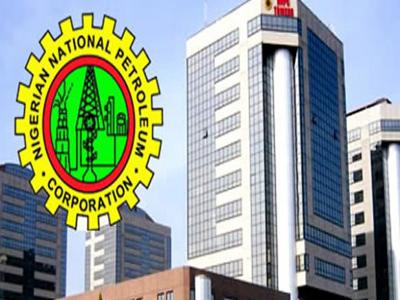


Petrol shortage and NNPC’s lies

SIR: Petrol shortage in Nigeria, an oil producing country, has become a regular occurrence, an albatross and part of our lives, and NNPC’s sing song too, that they have more than sufficient stock to last us numerous of weeks/months as they may choose to mention is also not new.
NNPC and DPR are always talking about panic buying; if motorists panicked and buy today, buy tomorrow they would not continue to buy, except such motorists have fuel dumps in their houses which is most unlikely. Rather than face the truth, NNPC would continue to insult the intelligence of Nigerians by saying they have sufficient reserve. What in the first place drives the people to panic buying? Are they not same people who at ordinary times drive their vehicles in and out of the filling stations without stress or panic, or have they just discovered some extra usage for petrol? If NNPC has applied a system of distribution for decades during scarcity and the system does not work, can’t they sit down and think of an alternative?
NNPC’s so-called mega stations, where they advise citizens to go and queue, and all the major marketers put together – say Total, Mobil, Mrs, Forte Oil, Capital, Nipco, Oando, Folawiyo etc. if added is not up to one third of the total network of filling station in this country. Yet for years NNPC during scarcity would sideline all the private marketers that constitude about two-third of product distribution network to the public, and decide to work the majors only, while accusing the same marketers who have always brought instant relief to the public, of diversion. Why do they not divert during normal times?
During scarcity, NNPC would deliver products to major marketers “who are trusted for non diversion”, and expect them to wet all stations throughout the country with products. It is no longer a secret that this same majors – Nipco, Folawiyo, Capital etc. would now begin to sell these products to filling station owners, the same people NNPC accuses of diversion, at N110, N120/litre less transportation. Transportation is usually N3 and above per litre depending on the destination. Then the same NNPC through DPR will now turn round and be harassing the poor private marketers for not selling at N78/litre. Then those who can afford to buy at this cut throat price, particularly, marketers from the North, would buy but would not able to sell at their filling stations for fear of DPR. They will now find alternatives for disposal and DPR will begin to shout diversion. Who should be blamed, NNPC or their major marketer agents or the poor man who bought at N120/litre?
Mainwhile, all these private marketers are licensed by DPR, and their licenses and bulk purchase agreements entitle them to the supply of about four or five trucks of PMS in a week. But these people end up getting, at the best one truck in a month from same NNPC depots, notwithstanding the fact that most of them have the capacity to sell one or more trucks in a day. That shows something is wrong with the system, particularly when those major marketers from whom the private marketers take refuge and find solace at ordinary times become incapacitated due to one disagreement or the other with the government.
The government knows that once these people do not import, scarcity is the end result. Yet the government/NNPC would wait complacently in their offices until this end result comes, and then begin to talk about panic buying. Who is fooling who?
Unfortunately, most of us laboured for this change in President Muhammed Buhari’s election, but this is not the change we voted for. Things have to be done differently from now if NNPC and its cohorts want to see different result.
Source: The Nation
Share this post
Naijanetwork Forum Statistics
Threads: 14843,
Posts: 17902,
Members: 6711


